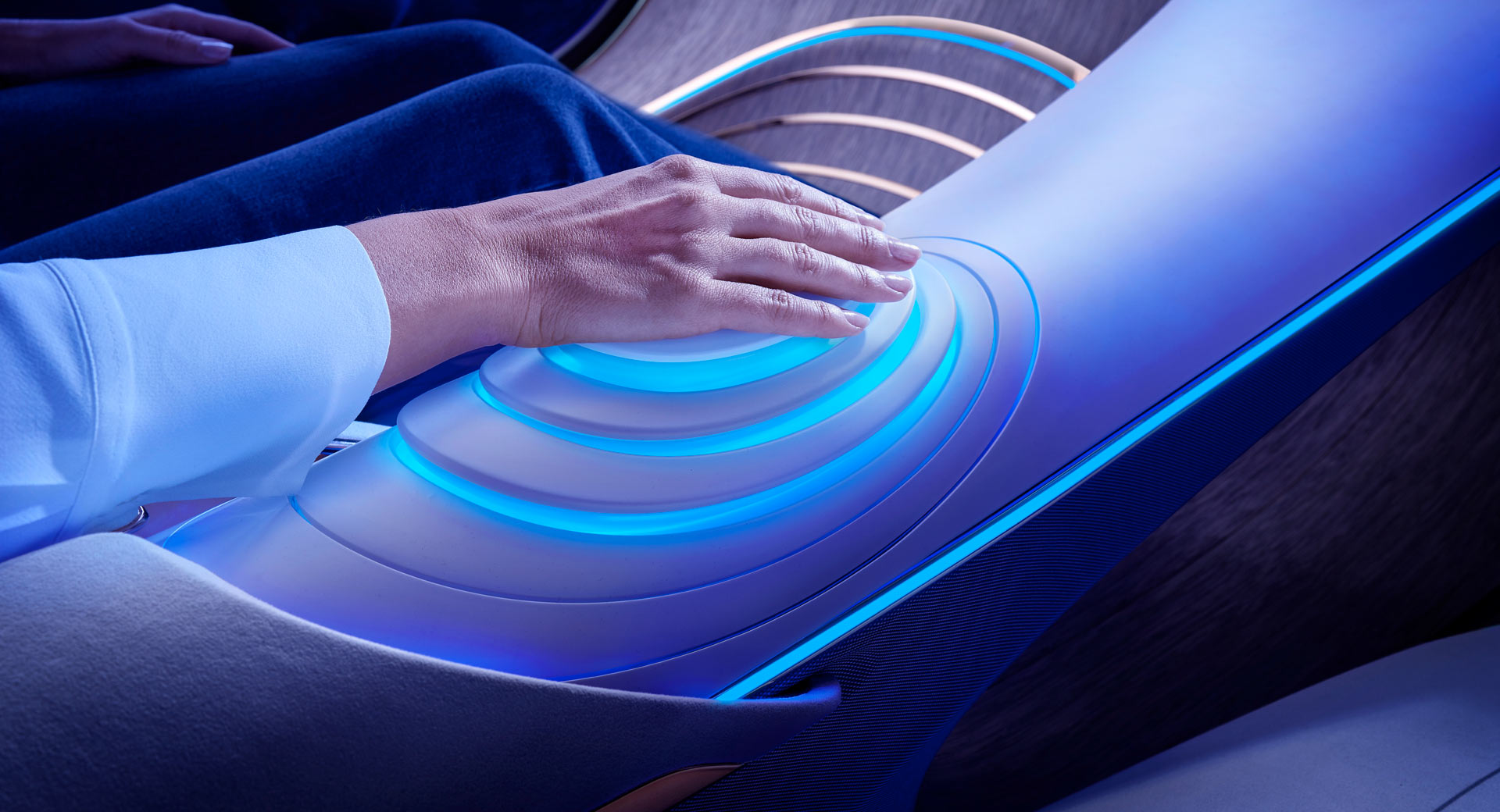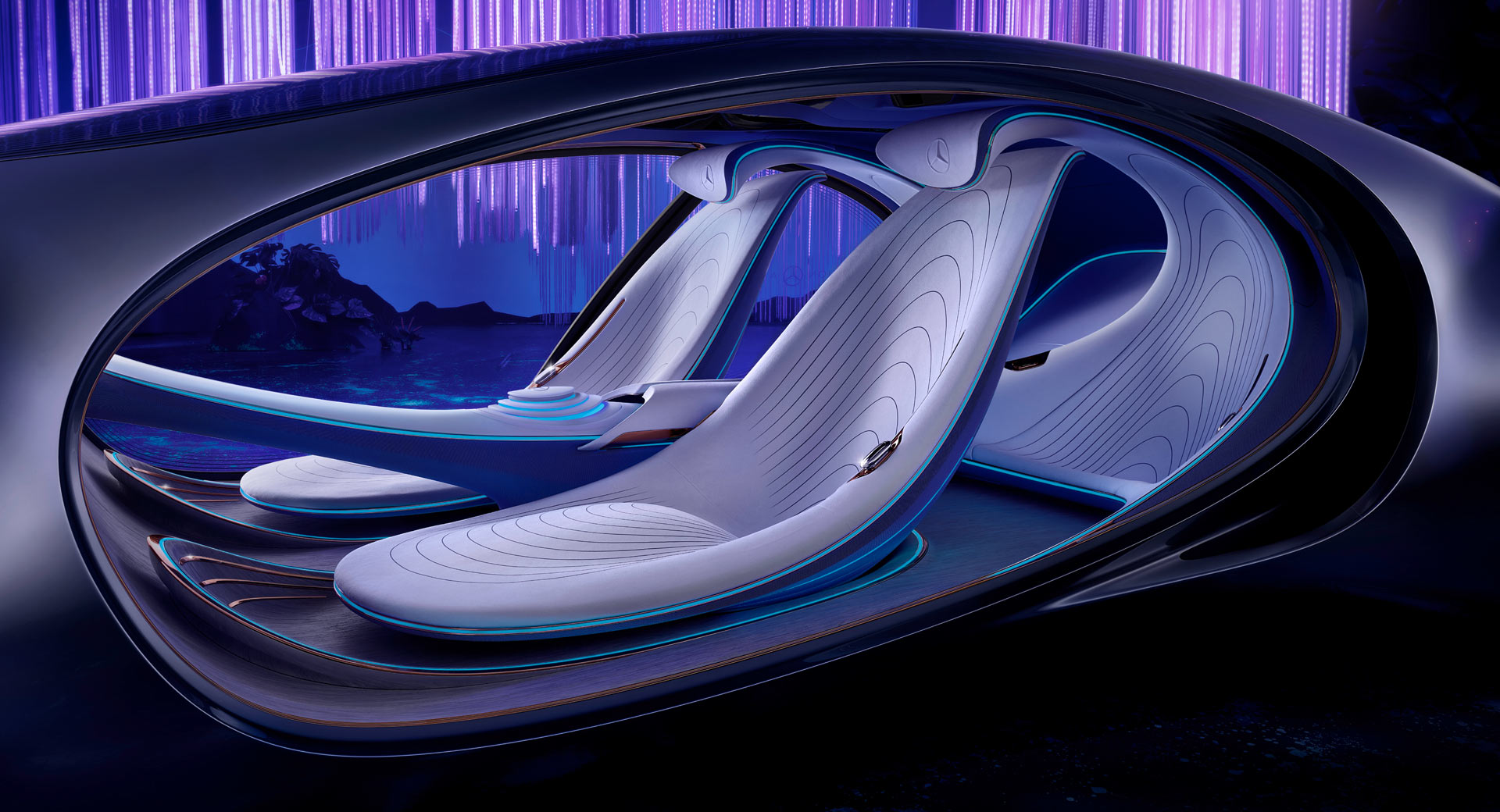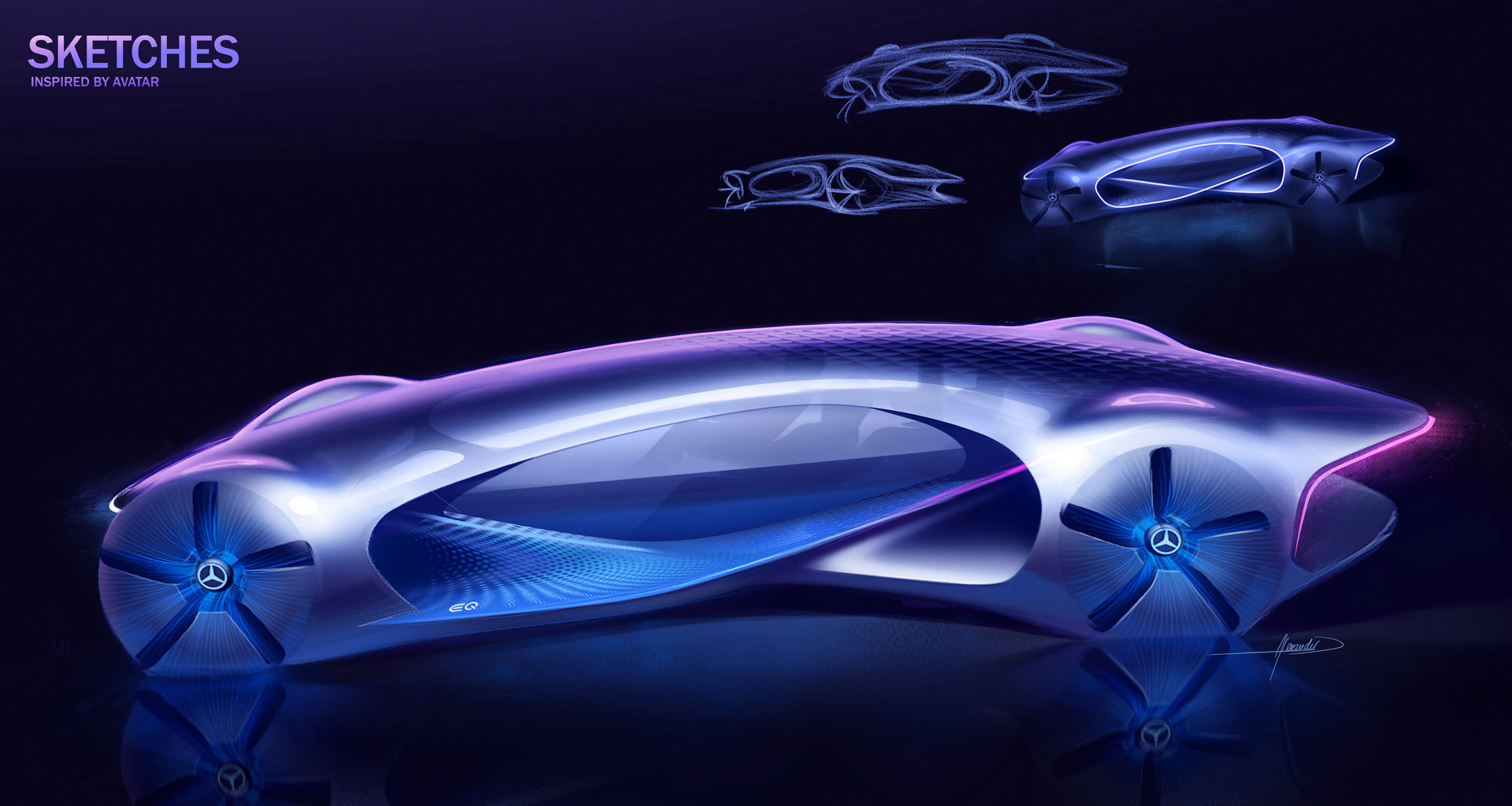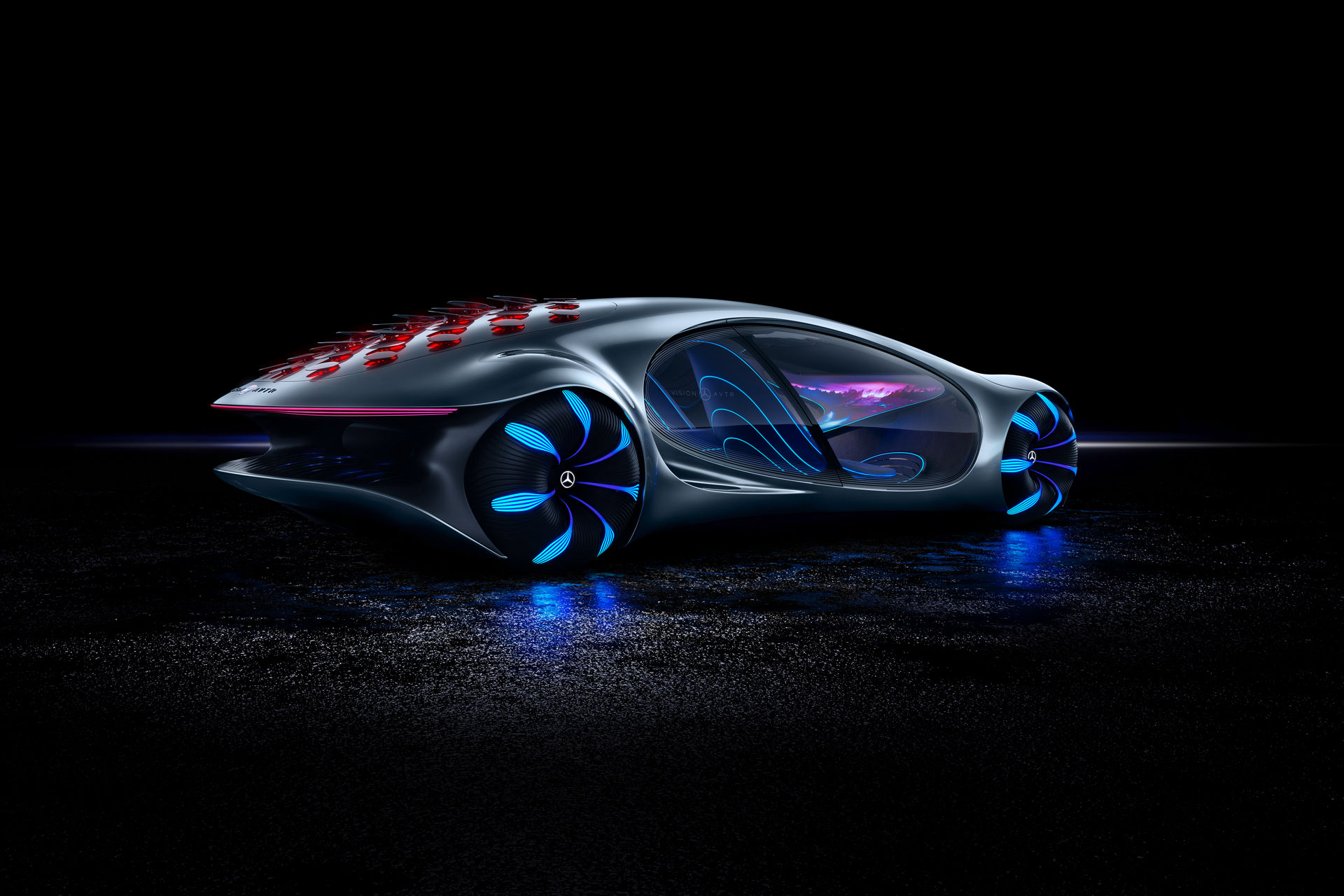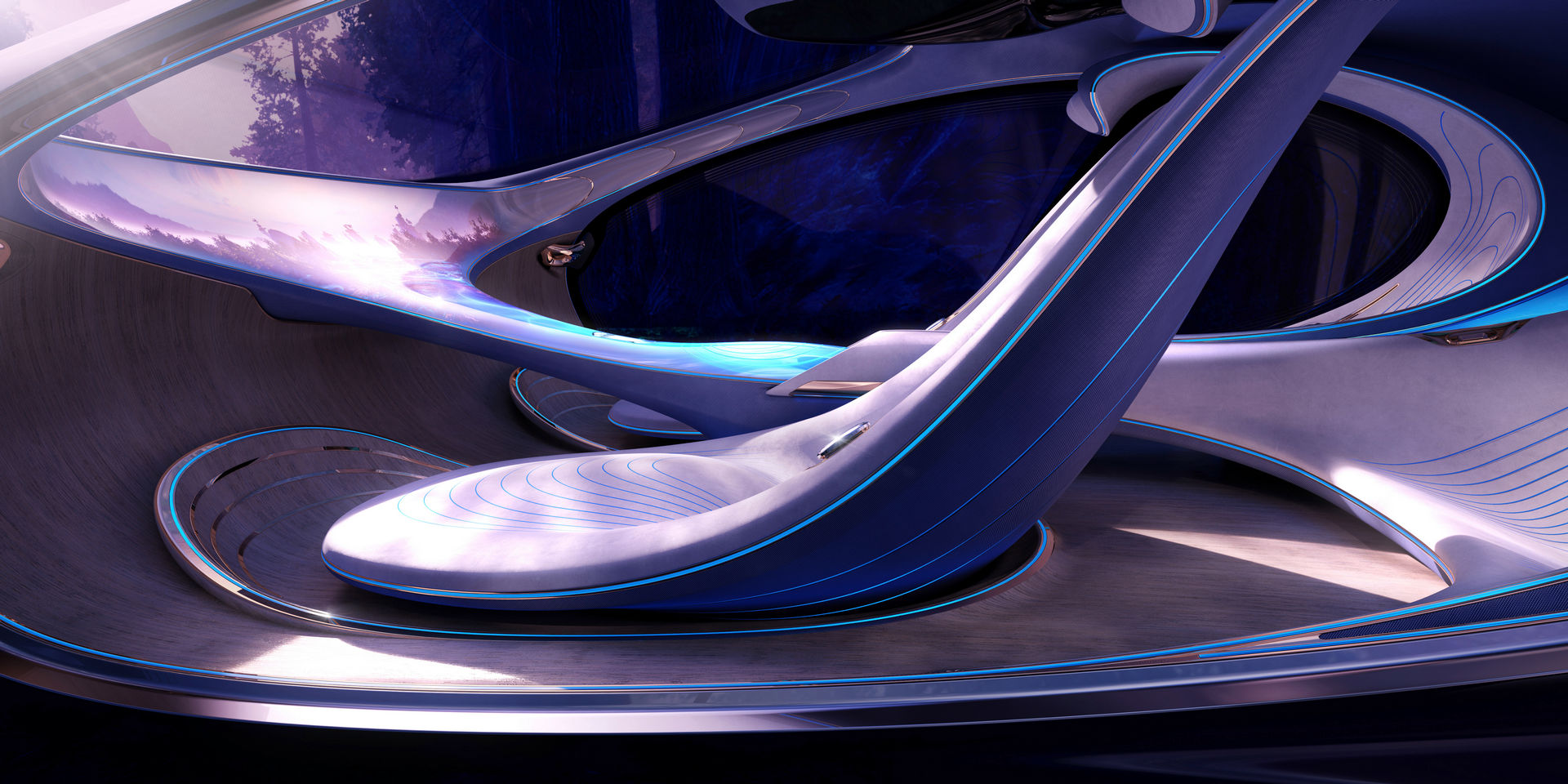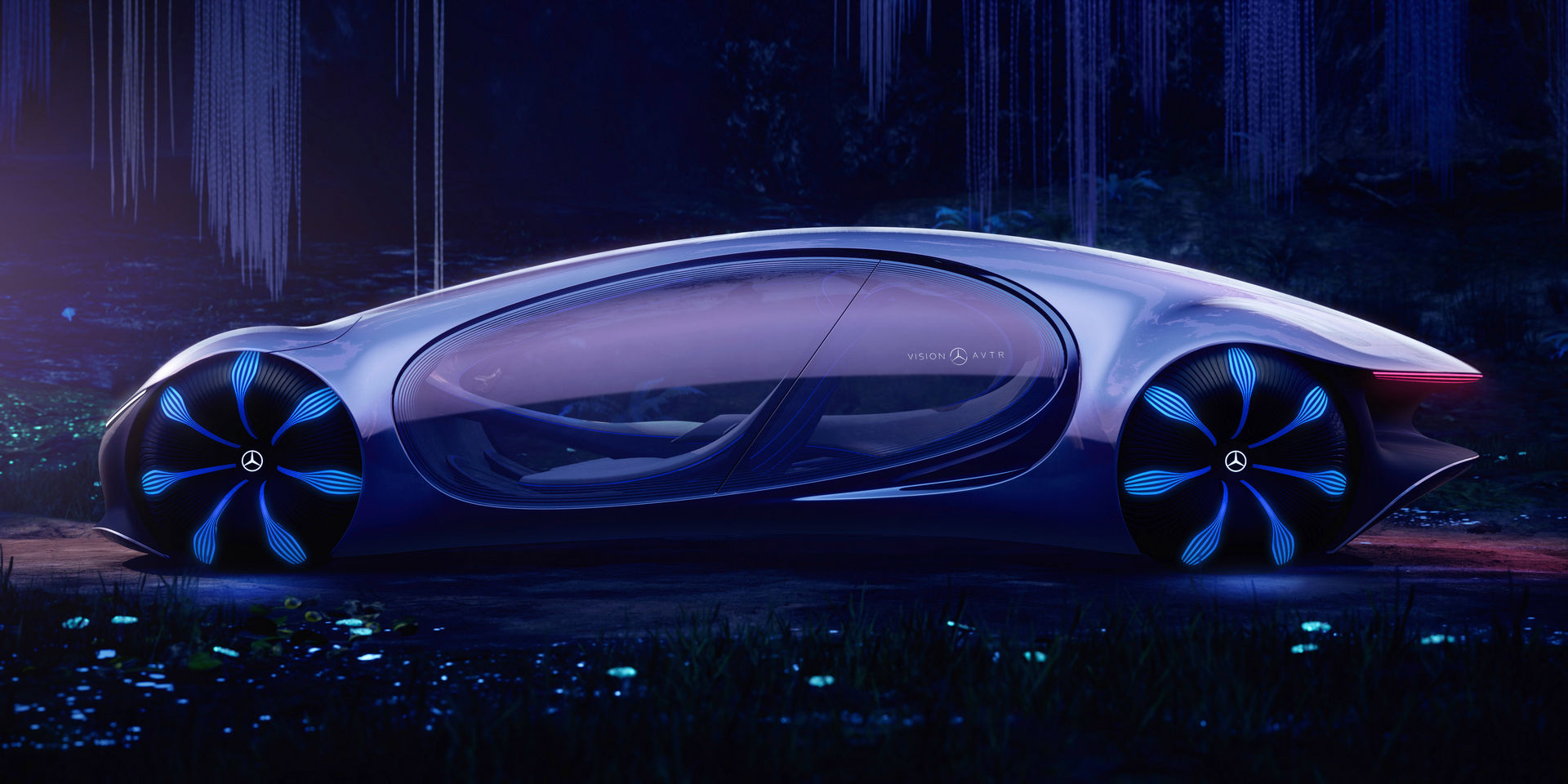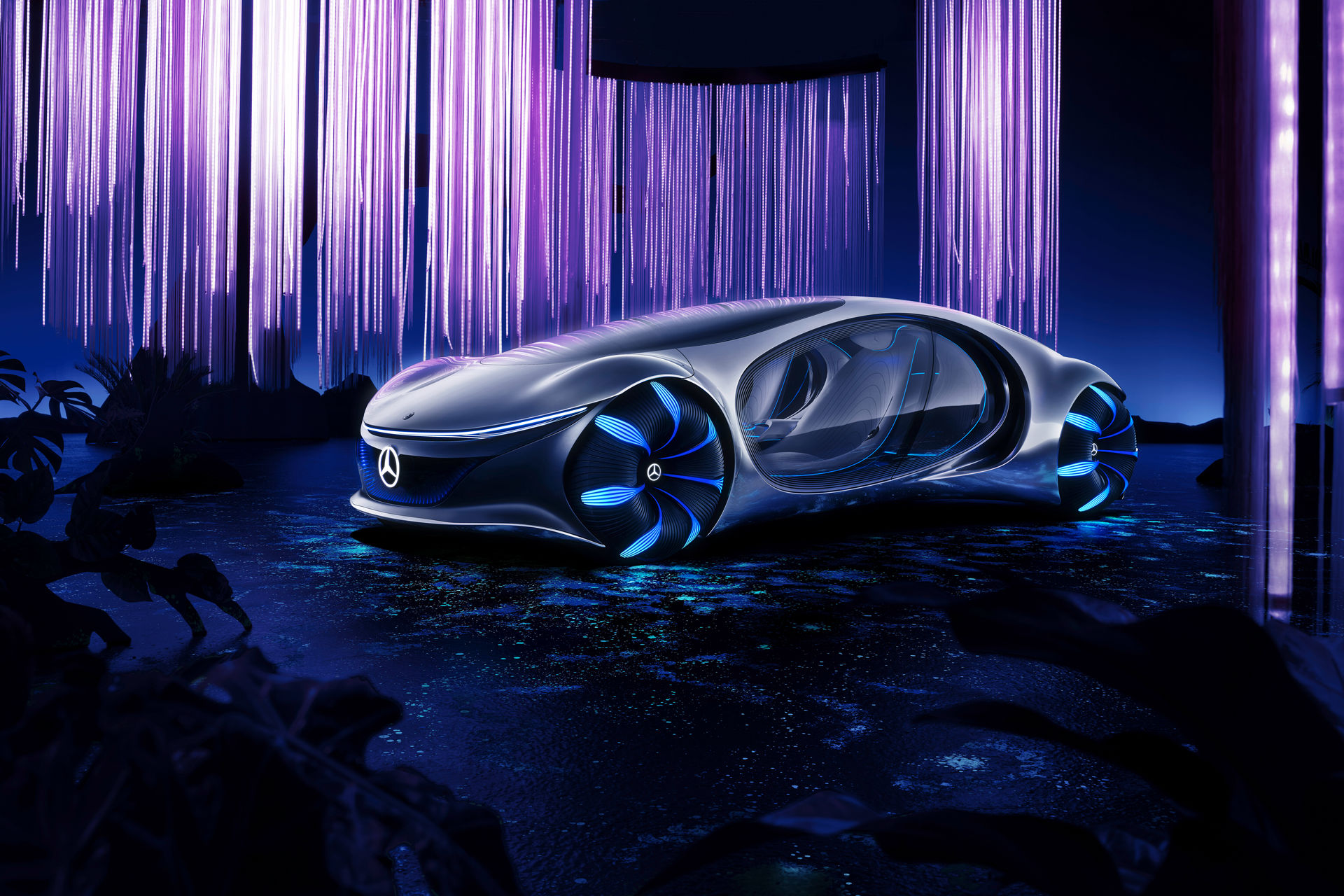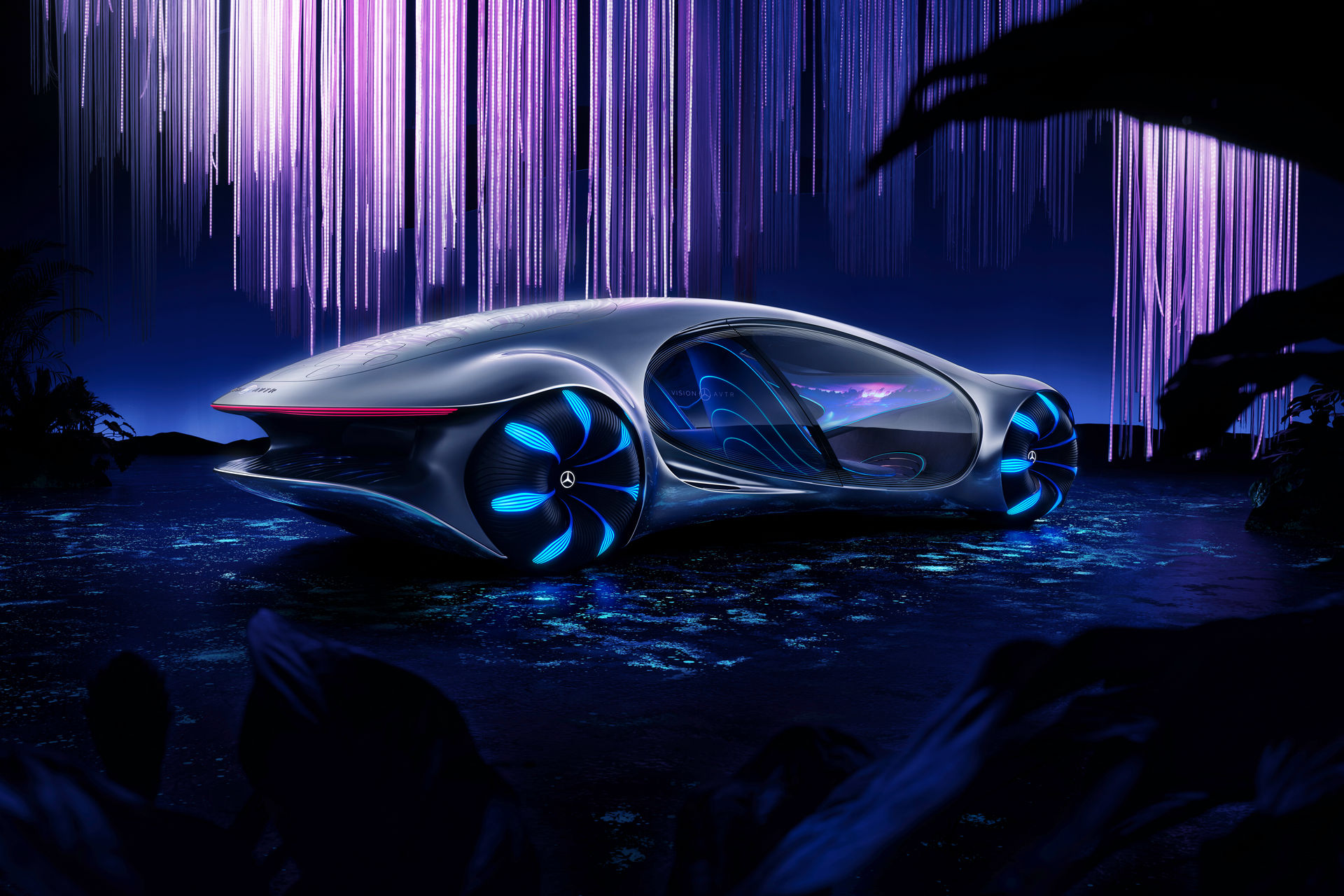Daimler has just announced its futuristic Mercedes-Benz Vision AVTR at the ongoing Consumer Electronics Show (CES), created thanks to a newly-announced partnership with the Avatar movie franchise.
The show car has been designed to “spark the imagination” of what cars in the future could be. The vehicle pays particular attention to the connection between man, machine, and nature, much like the symbotic relationship between the Na’vi people on Pandora from Avatar (and its forthcoming sequels).
Looking Into The Future: Driving The Mercedes-Benz Vision EQS Concept Feels Like Stepping Into The S-Class’ Future
All it takes is a quick look at the Vision AVTR to understand that it’s not like any vehicle currently on sale. For starters, there are absolutely no traditional car controls and instead, ‘drivers’ simply place their hand on an illuminated controller in the center console that measures various biometrics including your pulse. The rest of the interior flows around occupants and opens them up to the outside world thanks in particular to the presence of distinct accent lighting and sculptural shapes and surfaces.
Adorning the seats are vegan Dinamica leather that is made exclusively from recycled material from old clothing, flags, and PET plastic bottles. Much of the floor is decorated with an innovative wood dubbed Karuun, made from Rattan, a material found in abundance in areas including Indonesia.
The exterior of the Mercedes-Benz Vision AVTR features a rear complete with 33 multi-functional flaps that move in synchronization to mimic the breathing and movement of creatures on Pandora. These flaps also double to improve aerodynamics.
The drivetrain is equally as fascinating and showcases the car manufacturer’s commitment to reduce its carbon footprint. Powering the vehicle is a revolutionary 110 kWh battery pack using graphene-based organic cell chemistry that is free of rare, toxic, and expensive Earth metals, meaning the battery is 100 per cent recyclable. The battery can also be recharged in just 15 minutes and is good for a range of 700 km (434 miles). Propelling the concept forward are four fully-independent electric motors at each corner that combine to produce 470 hp.




